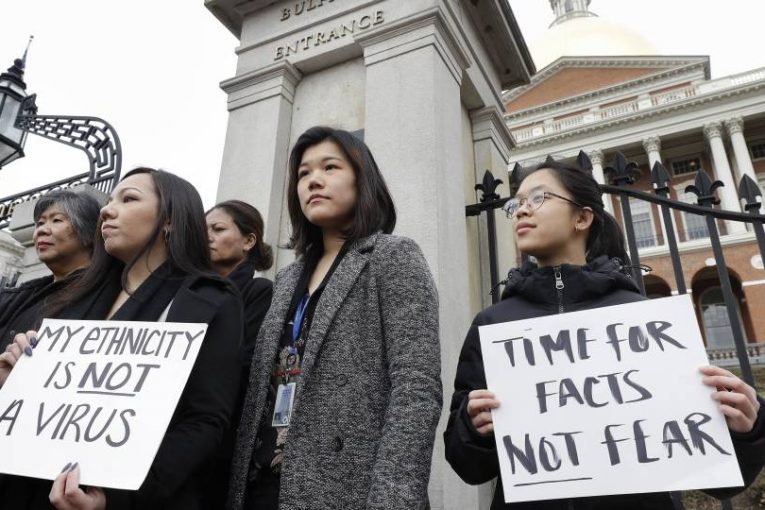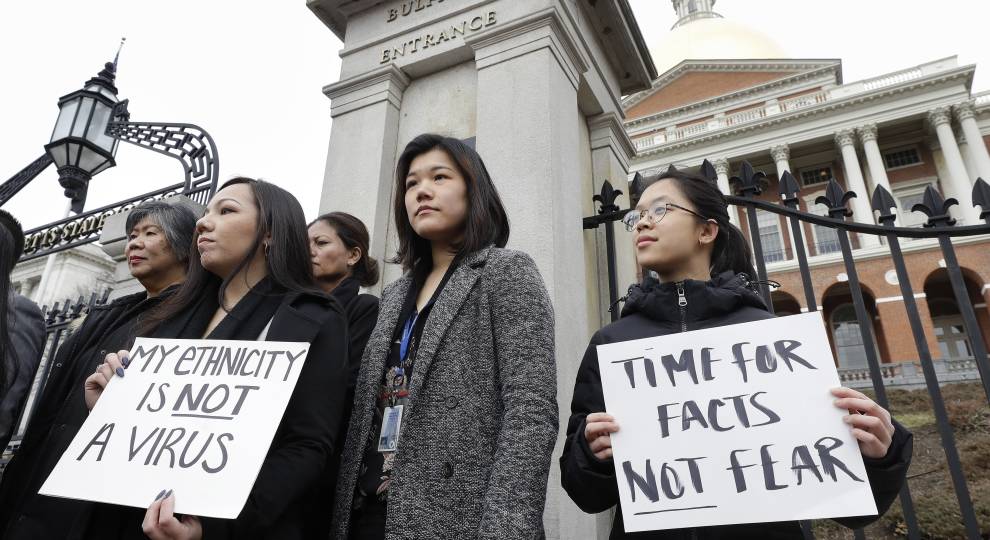

By Esha Kher and Alexander Ramirez
NATIONAL – Stop AAPI Hate, a national alliance directed at addressing anti-Asian American discrimination, reported that a total of 3,795 new reports of hate incidents between March 19, 2020, and February 28, 2021, against Asian Americans and Pacific Islanders (AAPI) across the U.S.
Among these incidents, 503 of them took place in January and February of 2021 alone. Moreover, the count from 2020 went up from 2,808 to 3,292 after an additional 484 incidents that took place in 2020 were reported recently in 2021.
Ever since the beginning of the COVID-19 pandemic, as many as three out of 10 Asian Americans have been directly affected by these attacks.
From the incidents Stop AAPI Hate has tracked over a year, verbal harassment cases have been most prevalent, with around 68.1 percent of the total incidents reported.
Shunning or deliberate avoidance of Asian Americans have been 20.5 percent of the total, and physical assault has been tracked at 11.1 percent of total incidents.
The hate has been exacerbated by the COVID-19 pandemic.
In one first-hand account documented by STOP AAPI, the victims claimed to be punched and pushed on the metro as the perpetrator repeatedly shouted, “Chinese b**ch”, fake coughed at, and physically threatened [them].
A few days later, the same man harassed and pepper sprayed the owner of Valley Brook Tea in DC, and called him “Covid-19” repeatedly.
Cynthia Choi, co-founder of Stop AAPI Hate and co-executive director of Chinese for Affirmative Action, emphasizes the need to recognize the “historical and ongoing impact that racism, hate and violence are having on the community, especially on women, youth and seniors, who are particularly vulnerable.”
Stop AAPI data reveals that women report hate incidents 2.3 times more than men and Youths report 12.6 percent of incidents and seniors (60 years old and older) report 6.2 percent of the total incidents.
Stop AAPI Hate receives incident reports from all 50 states and the District of Columbia. Their data indicates that businesses are the primary site of discrimination (35.4 percent), followed by public streets (25.3 percent) and public parks (9.8 percent). Incidents that take place online account for 10.8 percent of the total.
Russell Jeung, co-founder of Stop AAPI Hate, said on the matter, “Hate incidents are not abating. We cannot let anti-Asian American hate be a legacy of COVID-19 or the last presidential administration, but that’s exactly what will happen unless we demand concrete action.”
Stop AAPI Hate is demanding the Biden Administration include an expansion and enforcement of civil rights for people facing discrimination, passage of the Jabara-Heyers NO HATE Act, and for civil attacks on Stop AAPI Hate to be properly investigated by the U.S. Attorney General.
They also recommended the U.S. Civil Rights Commission expand and strengthen their community outreach efforts, while supporting the Department of Justice’s Community Relations Services in regard to community mediation.
To sign up for our new newsletter – Everyday Injustice – https://tinyurl.com/yyultcf9
Support our work – to become a sustaining at $5 – $10- $25 per month hit the link:
Well, this will probably anger (aka, foster “hatred”) for a bunch of people:
No evidence yet of federal hate crime in Atlanta-area spa killings, officials say (msn.com)
They ought to do-away with the “hate crime” definition/enhancement in the first place – regardless of skin color of perpetrators or victims. This seems more like a political argument, than a criminal one.
If sentences aren’t “long enough” for the actual crime committed, then “enhance” that. But, motivation is more difficult to determine, and ultimately has no effect on the outcome of a crime. Dead is dead. Injured is injured.
Hard to imagine that sentencing is the motivation when you have eight murders.
True.
It’s a political “bring attention to a perceived problem” motivation.
But, “hate crime” enhancements are a real thing (and are also full of political baggage).
I saw a comment elsewhere, which referred to this guy as the “great white racist” (or something like that). (In other words, sort of a hoped-for, made-to-order target, regarding an issue that hasn’t always involved “white” people.)
(You’re familiar with the term “great white hope” in boxing, I assume.)
Hate crimes enhancements are an interesting line drawn between anti-carceral progressives and other progressives.
Ron makes a good point. Absent overt statements or actions indicating motivation, hate crimes are difficult to prosecute. Such evidence might include:
defendant’s membership in a group that espouses hatred for certain groups (such as a black separatist group or an online chat group that opposes homosexuality)
defendant’s possession of literature or symbols associated with bias, such as Nazi memorabilia or anti-Semitic texts
defendant’s own writings, graffiti, or tattoos
the use of biased slurs or graffiti during or at the site of the crime
the date of the incident, if it coincides with a significant holiday or anniversary, and
other hate crimes committed by defendant.
From: https://www.criminaldefenselawyer.com/resources/how-prosecutors-prove-hate-crimes.html
Ultimately, I don’t know what the point is (from a criminal justice point of view).
Of course, this would not preclude investigating associations, regardless.
Individuals are (for better, or worse) allowed to “hate” others based upon skin color, sexual orientation, etc. To my knowledge, at least. And even to state it, openly.
Of course, you may not be “allowed” to operate a franchised sandwich shop, for example – for much-less offensive comments. Or work at any number for any number of employers. ;)
Apparently, though – you can make some pretty controversial comments regarding police lives, and remain employed as a professor.